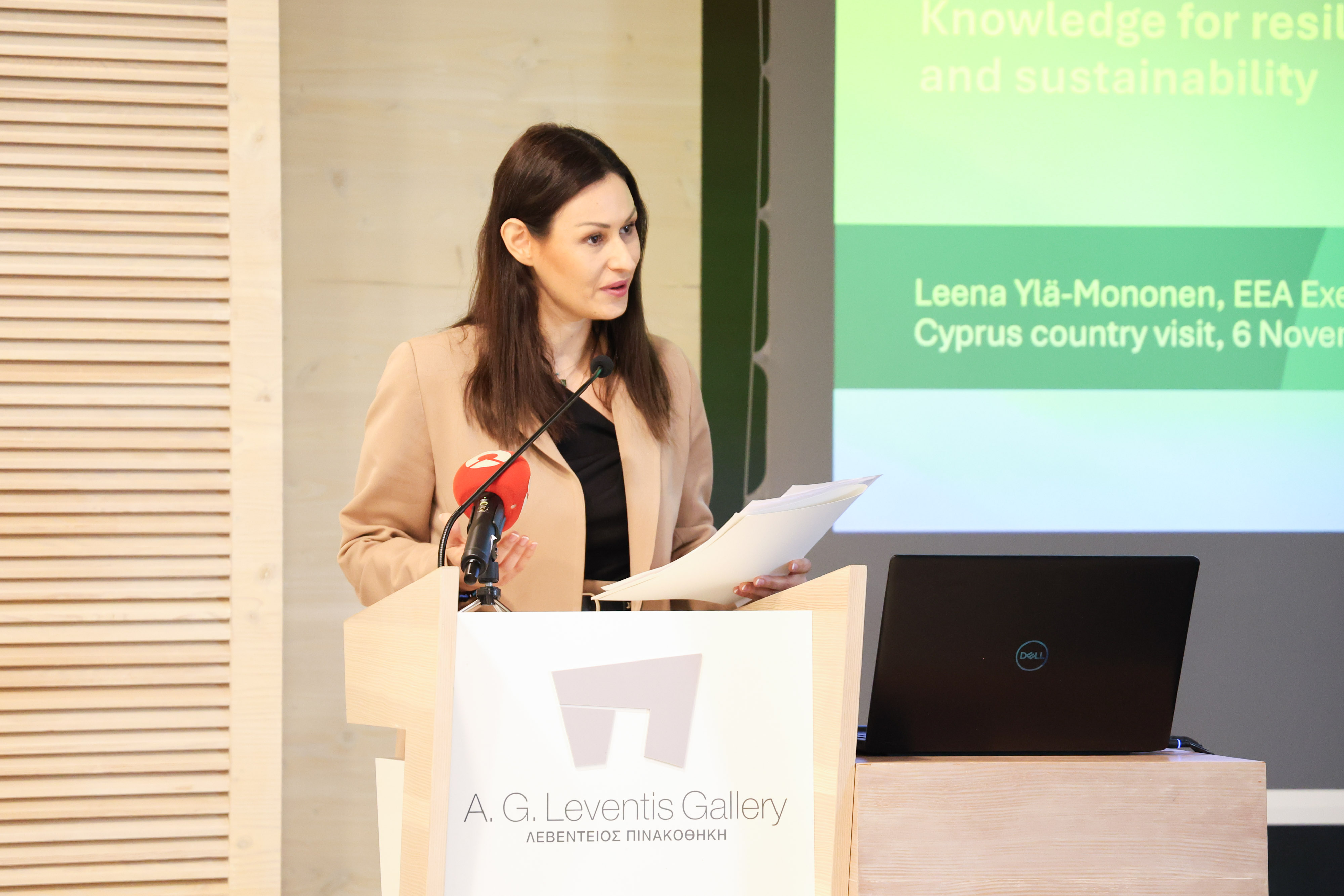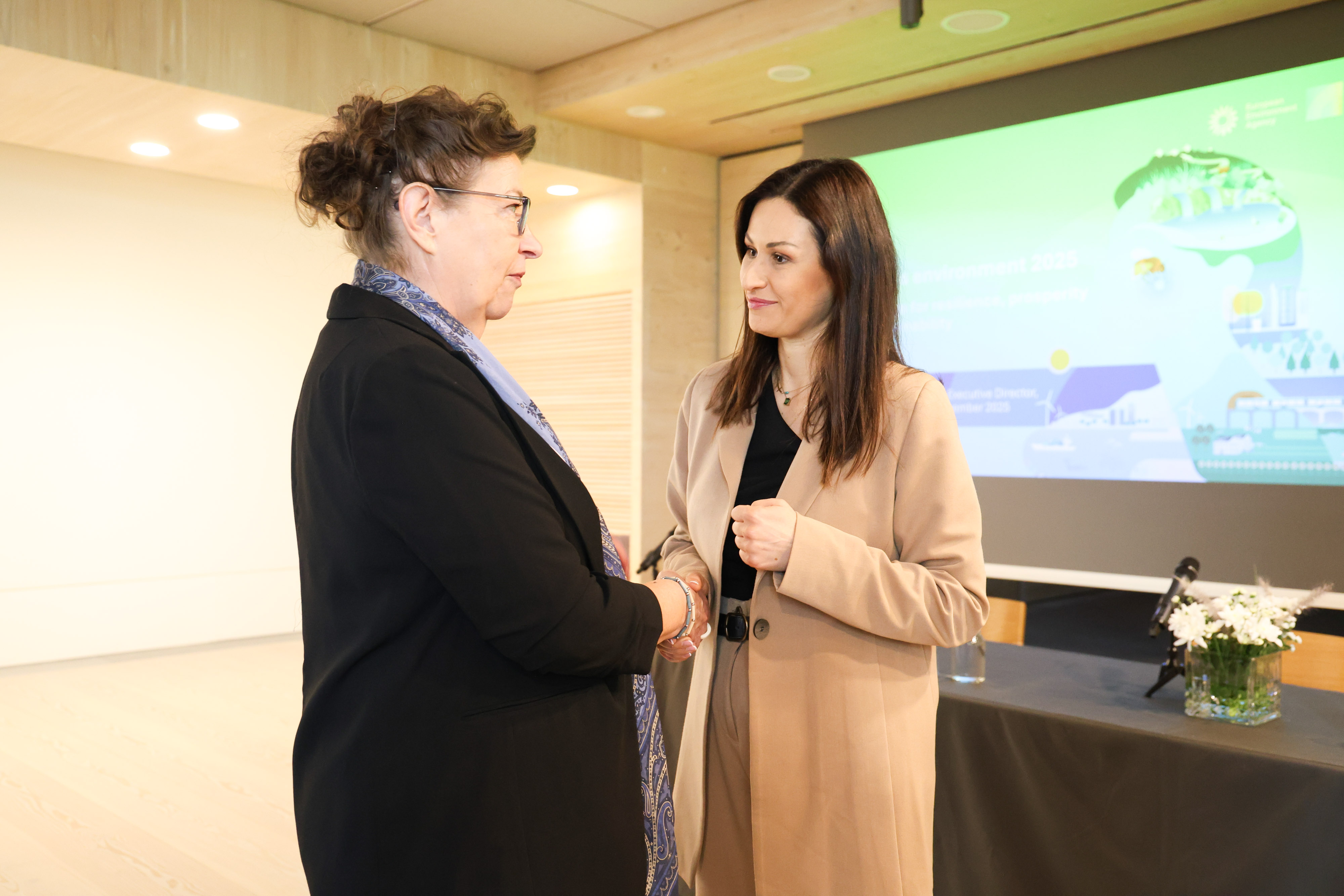Cyprus’ success in managing scarce water resources could serve as an example for the rest of Europe, the executive director of the European Environment Agency (EEA) Leena Yla-Mononen said on Thursday.
Speaking at the launch of the Europe’s Environment 2025 report, Yla-Mononen praised the island’s long experience in water reuse, describing it as “very important for other regions now beginning to face this scarcity.”
Her remarks came as Europe faces worsening droughts, rising temperatures and growing pressure on water supplies. Yla-Mononen’s visit to Cyprus carries particular importance as the country prepares to assume the Presidency of the EU Council next year.
She said Cyprus offers both a warning and an example: last summer’s wildfires showed the human and economic cost of climate change, but the country’s progress in water management demonstrates how adaptation and innovation can protect communities.
“If there is one key message from our report, it is this: nature is the foundation for ensuring human health, safety, and prosperity. Nature is not a luxury. Nature is non-negotiable,” she said, stressing that environmental stability underpins Europe’s health, economy and security.
Yla-Mononen described the report as “the most comprehensive scientific analysis” of Europe’s environment to date, warns that the continent is failing to meet several critical environmental goals.
While some progress has been achieved, including cuts in greenhouse gas emissions and reductions in air pollution-related deaths, the overall picture remains troubling.
More than 60 per cent of Europe’s species and 80 per cent of its habitats are in poor condition.
One-third of Europeans already face water scarcity, and Europe is warming faster than any other continent. The shift to a circular economy has also stalled, with the circularity rate standing at just 11.8 per cent.

“We are still very linear and very wasteful, using resources far more than many other regions of the world,” Yla-Mononen said, urging governments not to scale back their ambitions for climate and environmental goals.
“Europe cannot afford to lower its ambitions for climate, environment, and sustainability,” she warned.
During the event, Agriculture Minister Maria Panayiotou outlined the country’s priorities for its EU Presidency, focusing on water resilience, renewable energy, and circular economy initiatives. She described the presidency as “a defining moment of opportunity and responsibility,” pledging a balanced approach of “ambition but also realism.”
Panayiotou noted that while Cyprus had made progress in expanding the Natura 2000 network and promoting renewable energy, challenges such as fossil fuel dependency, waste management, and desertification remain.
“Addressing these issues requires continuous investment in green energy, circular economy practices, and sustainable land and water management,” she said.
Yla-Mononen said that Cyprus’ leadership in the EU council could help strengthen cooperation and accelerate Europe’s environmental transition.
The Europe’s Environment 2025 report concludes that protecting natural systems is essential for Europe’s stability and prosperity, calling for urgent and coordinated action across all member states.






Click here to change your cookie preferences